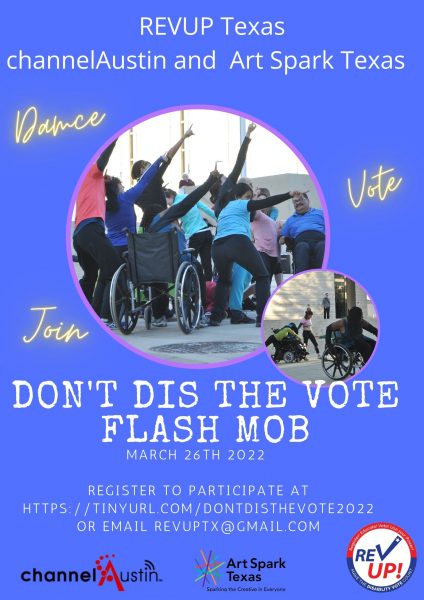 by Eric Clow
by Eric Clow
As someone who lives with significant physical limitations, I know all too well the obstacles that prevent people with disabilities from getting out and being a part of their community. On any given day, I might face challenges with caregivers, transportation, medical equipment, and assistive technology on which I depend. Even when everything aligns for a perfect outing, my body might disagree, or I may arrive at my destination to find that it isn’t accessible. The bottom line: my ability to participate is often determined by a combination of flexibility, accommodation, and luck.
This is why I, and so many others with disabilities, have been alarmed by the recent spate of restrictive voting laws. Along with people with disabilities, these restrictions also disproportionately impact people of color and low-income communities, of which we are a part. While I have not personally experienced difficulty accessing the polls, I understand that this is thanks to the privileges I enjoy: I have a (mostly) reliable vehicle, I have a caregiver and others who can assist me, I have accessible voting locations only a few miles away, and I have flexible hours at work that allow me to vote on a Tuesday or any early voting day. But, again, this is assuming that my body and all the services and equipment I rely on cooperate. So, you can imagine the added struggle that anyone without these privileges might experience in trying to vote.

Mail-in ballots, early and curbside voting, the wide availability of ballot drop boxes—these are just a few of the means that allow us to exercise our democratic right without fear that a health flareup or some transportation snafu will stand in the way of our vote. If we have several options, we know that, more than likely, one is going to work. If, however, these options are curtailed or eliminated entirely, this casts our vote in question. As each election approaches, we will have to work much harder than our non-disabled counterparts, or risk sitting it out.
At the same time, we recognize the tremendous power of the Disability Vote. With one in four Americans experiencing some form of disability, we represent a formidable voting bloc. Through our vote, we can shift misguided attitudes about disability, protect and fortify our rights under the Americans with Disabilities Act, and continue to expand services that enable us to participate in every aspect of community life, be it employment, education, the arts, and so forth.
It’s in celebration of this power that Art Spark Texas partnered with REV UP Texas and channelAustin to create Don’t Dis the Vote, a choreographed flash mob set to an original disability voting anthem. Even more exciting, you can join us in this project! The flash mob will take place Saturday, March 26. Register here.
People from across the political spectrum often question whether their vote even matters. I know because I’ve done it myself. But, at a time when voting restrictions are being enacted throughout our country, we have to ask ourselves: if our vote has no power, why would anyone try to suppress it? In reality, I think our vote is the greatest, and perhaps the only, power that we truly wield. Let’s show the power of the Disability Vote!
